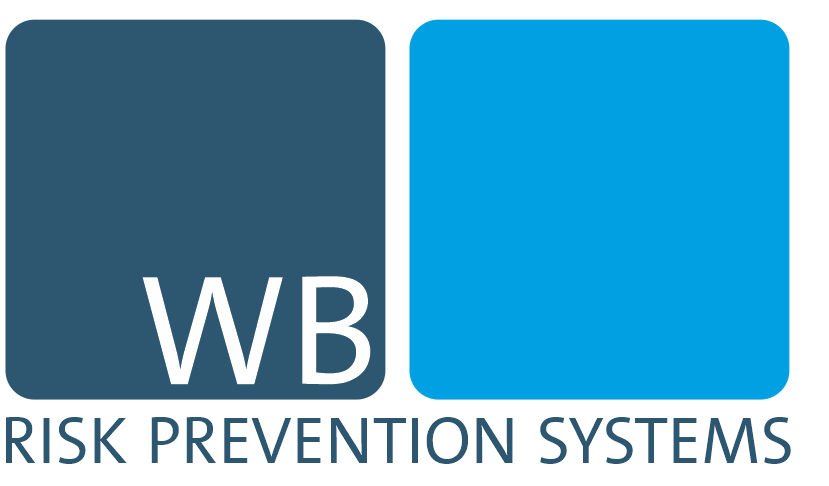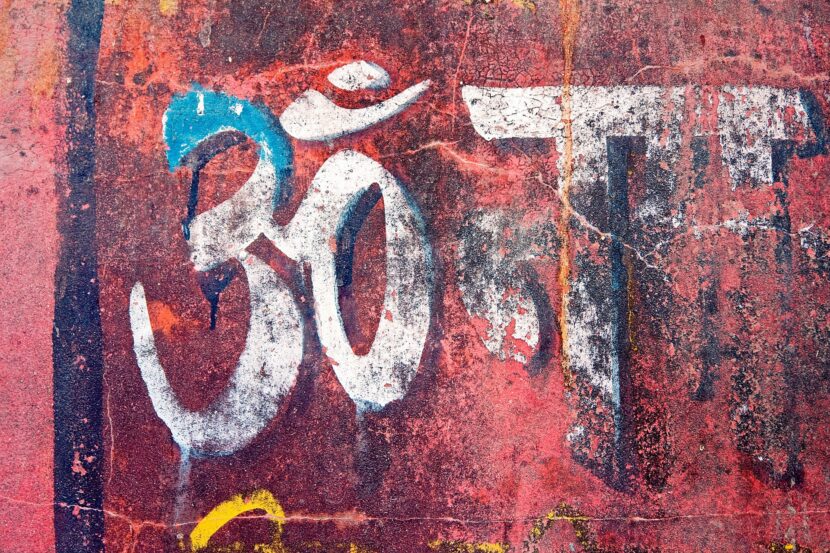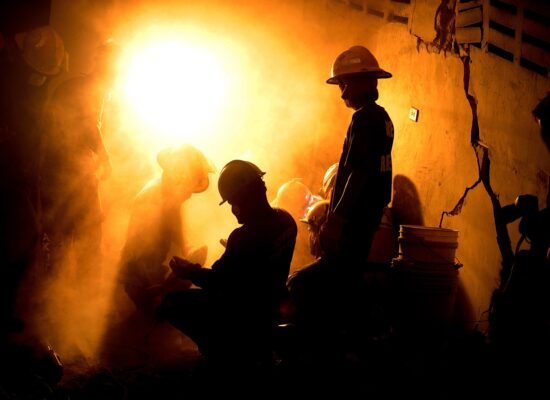Mike D. Batra wuchs unter anderem in New Delhi auf und gründete in der Hauptstadt Indiens im Jahr 2004 eine Beratungsfirma, eine der beiden Ursprünge für die heutige Dr. Wamser + Batra GmbH. Auch Notfallmanagement und Risikoprävention zählen zu deren Dienstleistungen für deutsche und europäische Kunden vor Ort.
Indien gehört zu den Ländern, die am stärksten von der Corona-Pandemie getroffen wurden. Wie haben Sie als Unternehmer vor Ort die Situation erlebt?
Mike D. Batra: Die Pandemie wirkt sich sehr stark auf das Geschäft unserer Kunden vor Ort aus. Die zweite Welle hat eine viel größere Strahlkraft als die erste Welle im Jahr 2020. Und wieder war man wenig vorbereitet. Es gab monatelang kein anderes Thema, der geschäftliche Alltag fand fast gar nicht mehr statt. Und das alles, nachdem sich die Situation schon fast wieder normalisiert hatte. Nach meiner Ankunft im Januar 2021 hatten wir regelmäßig Termine mit Kunden und Kollegen, wobei wir natürlich die AHA-Regeln eingehalten haben. Im gesellschaftlichen Umfeld jedoch, etwa im Freundeskreis oder bei Hochzeiten, wurden die Vorsichtsmaßnahmen zu schnell fallengelassen. Man hat gesehen, wie wichtig es ist, die Pandemie weiterhin ernst zu nehmen. Betroffen sind nicht nur die Städte, sondern gerade auch die ländlichen Gebiete. Dort haben unsere Kunden ihre Produktionsstätten und von dort kommen auch ihre Arbeiter.
Rund 1800 deutsche Unternehmen haben sich in Indien angesiedelt. Der Subkontinent gilt ohnehin als sehr schwierig. Gibt es Kunden, die jetzt an Rückzug denken?
Batra: Nein, bisher nicht. Viele Unternehmen hatten erstaunlicherweise den nach Ausbruch der Pandemie verlorenen Umsatz bis zum Ende des indischen Fiskaljahres Ende März 2021 sogar wieder reingeholt. In vielen Fällen ging es ihnen nicht schlechter als vor dem Beginn von Corona. Dann kam die große Ernüchterung. Dass Indien plötzlich auf Hilfslieferungen von medizinischen Produkten angewiesen war, hat einen großen Imageverlust im Ausland mit sich gebracht. Auf einmal war man der Bittsteller, nachdem Premier Modi nach seiner Kampagne „Make in India“ mit der Self-Reliant-Kampagne im Herbst 2020 das Gegenteil bewirken wollte, nämlich unabhängig zu sein. Dennoch wird sich am langfristigen Engagement der Unternehmen und unserer Kunden nichts ändern. Zuletzt haben wir u.a. im Bereich IT-Offshoring verstärkt Nachfragen von Unternehmern bekommen.
In Indien liegen die Wurzeln des Geschäfts von WB. In kaum einem anderen Land kann man so viele Erfahrungen im Risk Management sammeln wie dort. Aber Sie hatten auch schon vorher einiges erlebt.
Batra: Indien ist das perfekte Trainingscamp für Krisenmanagement. Sie müssen neben Naturkatastrophen, Terroranschlägen, Korruption oder Streiks mit ständigen Abweichungen von Plänen klarkommen. Aber schon vor der Firmengründung habe ich privat viele Erfahrungen mit unerwarteten Ereignissen gesammelt. In den 90er Jahren war ich als Praktikant mehrfach in Israel, wo es immer wieder Terroranschläge gab, etwa Busse explodierten. Damals habe ich erstmals erlebt, was plötzlich passieren kann und welche Maßnahmen zur Abwehr getroffen werden. 2001 war ich dann als Student während der 9/11-Anschläge in New York. Unser Wohnheim wurde nach dem Einschlag des ersten Flugzeugs evakuiert, da es nur ein paar Meter vom World Trade Center entfernt lag. Das Ausmaß des Terroranschlags war bis zu diesem Zeitpunkt unvorstellbar. Trotzdem gelang es durch koordiniertes Verhalten der Uni und der Krisenstäbe mit Notfallplänen, die offenbar bereits in den Schubladen lagen, zügig gegenzusteuern. Wir wurden für mehrere Wochen in der Turnhalle der Uni untergebracht, wo es bereits am Nachmittag Betten, Essen, Kleidung und Telefone gab. Dieses Erlebnis hat mein Bewusstsein für Krisen und Prävention nachhaltig geschärft.
Welche Risiken müssen Kunden im Blick haben, die in Indien Erfolg haben wollen?
Batra: Das größte Risiko ist, wenn sich Newcomer auf den Markteintritt schlecht vorbereiten, weil sie zu einseitig auf das Potential und damit die Chancen eines großen Marktes schauen. Das gilt genauso für andere Märkte. Man muss sich aber auch intensiv mit den lokalen Herausforderungen auseinandersetzen. Oft stellen Unternehmen vorschnell lokale Mitarbeiter ein oder binden sich an einen Joint-Venture-Partner, den man kaum kennt und bei dem man nicht geprüft hat, wie dieser zum Beispiel finanziell dasteht oder ob es stimmt, was er über sich und sein Netzwerk erzählt. Diese Vorgehensweise entspricht ja eigentlich gar nicht dem risikoaversen Naturell deutscher Unternehmer. Bei Indien hat man aber oft die Risiken und alle möglichen Szenarien nicht eingehend vorab analysiert, was sich immer wieder als großer Fehler herausstellt.
Mit Ihrer jahrelangen Erfahrung und Ihren Dienstleistungen unterstützt WB Unternehmen auf dem Subkontinent. Was sind Beispiele für aktuelle Projekte?
Batra: Wir betreuen immer mehr Vertriebsprojekte bei Kunden, deren Umsatz stockt. Wir finden für die Unternehmen mit unseren informellen Möglichkeiten heraus, wie ihr Markt beschaffen ist, wie die Wettbewerber aufgestellt sind, wie sich die Preise darstellen. Allein können die Kunden diese Informationen meist nicht beschaffen. Die eigenen Mitarbeiter erzählen oft nicht die Wahrheit oder nur die halbe Wahrheit und schieben zum Beispiel die nur mäßig steigenden Umsätze auf das zu hohe Preisniveau deutscher Produkte. In vielen Fällen hat man über die Jahre Millionenverluste angehäuft, selbst bei kleinen Vertriebs- und Servicegesellschaften. Man darf ja nicht nur auf das Ergebnis der Indien-Tochter schauen, sondern muss auch den Aufwand aus dem Stammhaus hinzurechnen, etwa für Schulungen, Reisen, was oftmals nicht eingerechnet wird. Bei Wamser + Batra haben wir viele Instrumente, um im Vertrieb Potenziale vor Ort zu analysieren und zu realisieren.
Die Corona-Pandemie hat einmal mehr gezeigt, wie anfällig Lieferketten sein können. Wie unterstützen Sie in diesem Bereich Ihre indischen und deutschen Kunden in Indien?
Batra: Das Thema Lieferanten ist in Indien grundsätzlich schwierig. Man braucht viele Jahre, um verlässliche Beziehungen zu Unternehmen aufzubauen sowie Methoden einzuführen, die eine gleichbleibende Qualität wie auch Termintreue garantieren. Bei Untersuchungen stellen wir zum Beispiel immer wieder fest, dass unsere Kunden zu hohe Preise für Vorprodukte bezahlen. Ein zweites unterschätztes Risiko ist die Abhängigkeit von bestimmten Lieferanten. Gerade kleinere indische Lieferanten waren während der Pandemie durch den Lockdown sehr stark betroffen. Wenn dann einer wegbricht, gefährdet das oftmals nicht nur die Produktion vor Ort, sondern auch die in anderen internationalen Werken. Die Lieferengpässe hätte man vermeiden könne, wenn man für den Notfall ein dichteres Netzwerk geknüpft hätte. Dabei unterstützen wir unsere Kunden, indem wir zum Beispiel mit den Einkaufsabteilungen arbeiten, um ein systematischeres Verfahren für die Identifizierung und Auswahl von Lieferanten einzuführen.
Im WB Risk Prevention Systems Team blicken alle Partner auf jahrzehntelange Erfahrungen mit Krisen zurück. Aber jeder bringt auch eine gewisse Spezialisierung mit. Worauf liegt Ihr Fokus?
Batra: Neben Know-how über den indischen Markt bringe ich meine internationalen Erfahrungen im Nahen und Mittleren Osten, in Latein- und Südamerika sowie Afrika ein. Das spielt für viele Projekte eine wichtige Rolle. Während meiner Ausbildung in Maastricht und New York lag bereits ein Fokus auf Finanz- und Risikomanagement in Schwellenländern, allen voran Indien. Da ich Indien aber schon kannte, bin ich danach sehr viel gereist. Mein Ziel ist es, alle Staaten der Welt kennenzulernen, bei 145 Ländern bin ich vor der Pandemie stehengeblieben. Während dieser Reisen lernt man sehr viel, was passieren kann. Das schärft die Sinne und hat mir auch für Projekte in Indien sehr geholfen. Darüber hinaus habe ich mich in den vergangenen Jahren sehr stark auf das Thema Intelligence konzentriert. Ich habe sehr viele Methoden und Instrumente erprobt, wie man Informationen über seine Kunden, Partner und sein Umfeld über verschiedenste Kanäle herausfinden kann. Dafür eignet sich Indien ganz besonders, da man vor Ort so viel Widersprüchliches hört. Auf Basis dieser Informationen können wir dann wichtige Entscheidungen für die Risikoprävention treffen und auch in Notfällen direkt eingreifen.
Mehr über den beruflichen Werdegang von Mike D. Batra erfahren Sie hier.
Sie möchten sich mit Mike D. Batra austauschen? Schreiben Sie uns!





